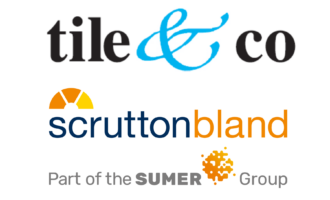Over the last few years, the market for furnished holiday let (FHL) properties has grown dramatically. With both the post-lockdown ‘staycation’ boom and the growth in opportunities such as Airbnb and Vrbo, many landlords have converted long term let properties into holiday lets as demand outweighed supply and weekly rental rates jumped upwards.
The impact of this has been widely reported with issues in the wider housing market such as the increases to interest rates, reduction of properties being either sold or available to let, and the resulting slowdown in house sales and increase in rental rates, pricing some out of the market all together.
So, back in March 2024 under the previous government, the then Chancellor announced that the tax advantages currently offered to owners of FHLs were to be scrapped from 6 April 2025.
With the changes meaning all income from property will be treated the same for tax purposes.
With this date now upon us, Chris George, Tax Advisory Partner explains which tax advantages are being removed, and the impact this is likely to have on those individuals and businesses still currently operating FHL properties.
Loss of full relief on interest payments
Currently, mortgage interest on a qualifying FHL property can benefit from a full deduction against income, meaning an Income Tax saving of up to 45%. However, from 6 April 2025, the mortgage interest rules will follow those of other property lettings, and only a maximum of 20% tax relief will be available.
So, for FHL owners with significant borrowings or those with multiple properties this could have a substantial impact on tax liabilities.
Less flexibility for joint owners and less generous relief for losses
Apportioning profits & losses for married joint owners of FHL’s has, up until this point been quite flexible, allowing for a reduced combined tax liability. But from 6 April 2025 this flexibility will be removed.
With holiday lets being treated the same as any other property income, this means couples who want to split profits or losses unequally will only be able to do so by making sure the entitlement to the property is in unequal shares, and that HMRC have been advised by the spouse or partner that the share of profit should match this – declared by using a Form 17.
If not, all profit and losses will automatically be split 50:50.
The example below shows how these changes could impact a husband and wife with two FHL properties:
| FHL1 | Pre April 25 | Post April 25 |
| Income | £25,000 | £25,000 |
| Expenses | £5,000 | £5,000 |
| Interest | £7,000 | £- |
| New Furniture | £3,000 | £- |
| Profit | £10,000
Allocated to Husband as he is lower earner But allows him to make pension contributions |
£20,000
Interest relief at £7k x 20%, potentially increasing tax by £1,400 Profit split equally between spouses |
| FHL 2 | Pre April 25 | Post April 25 |
| Income | £15,000 | £15,000 |
| Expenses | £10,000 | £10,000 |
| Interest | £8,000 | £0 |
| Profit | -£3,000
Allocated to Wife, she can offset against her other income, producing a tax saving |
£5,000
Interest relief at £8k x 20%, potentially increasing tax by £1,600 Profit split equally between spouses |
Removal of Capital Gains Tax Reliefs on sales or gifts
One of the other key tax advantages of FHL’s has been the availability of Capital Gains Tax (CGT) reliefs.
Currently, FHL properties benefit from CGT Holdover Relief meaning they can be gifted to a family member without incurring any liability to CGT. This is particularly attractive on those properties who are debt-free as it can also then be passed down without an SDLT liability. But from 6 April 2025 Holdover Relief will no longer be available on the gift of the property to individuals.
In addition, Business Asset Disposal Relief, which has been used in some cases as an additional benefit, will not be available on any disposals of FHL properties.
Impact on pension planning
Another useful benefit of FHL properties was that their profits were classed as trading income for pension purposes. Meaning they could count towards net relevant earnings and determine the level of pension contributions to benefit from tax relief.
But moving forward, FHL profits will be treated as investment income like all other rental property profits and will therefore not count as net relevant earnings for pension purposes.
Meaning that in some cases, this will drastically reduce the amount of pension contributions that some landlords can make.
Loss of Capital Allowances
Another major advantage of FHL properties has been the availability of capital allowances that provide tax relief (in most cases at 100% in the year of acquisition) on various parts of the property as well as fixtures and fittings. This can include everything from a new bathroom to plates, sofas and beds.
However, from April 2025, these allowances will not be available on future purchases of these types of assets. So, now is the time to act if you need to make any significant improvements to your FHL.
Do bear in mind though that there may be a clawback of allowances previously claimed on FHL properties. There’s still some uncertainty about how this would work, but it could be that FHL owners have a tax charge that’s equivalent to the current market value of assets where allowances have previously been claimed but that are still owned in April 2025. And this could result in a significant tax charge in the tax year of change.
The time to act is NOW
If you’ve not already made changes then time has almost run out to do so before these new regulations come into effect.
So, for many, the changes may well act as the catalyst for reviewing their ownership of the FHL properties going forward. You may decide that the property should be changed to a long term let with the potential for longer term tenants and more income security.
Alternatively, property owners may look to sell up – and there are other things to consider here if it’s your second home
Another option is to make use of the CGT Holdover relief while it’s still available and pass the property onto children without incurring any CGT liability.
Whilst this is likely to have an impact on all FHL owners in some way, as with all tax planning, there’s no ‘one size fits all’ approach.
Seeking professional advice suited to your individual circumstances is the best way to weigh up the options before making any decisions. To get in touch with Chris or one of our Tax Advisory team, please call 0330 058 6559 or email hello@scruttonbland.co.uk







